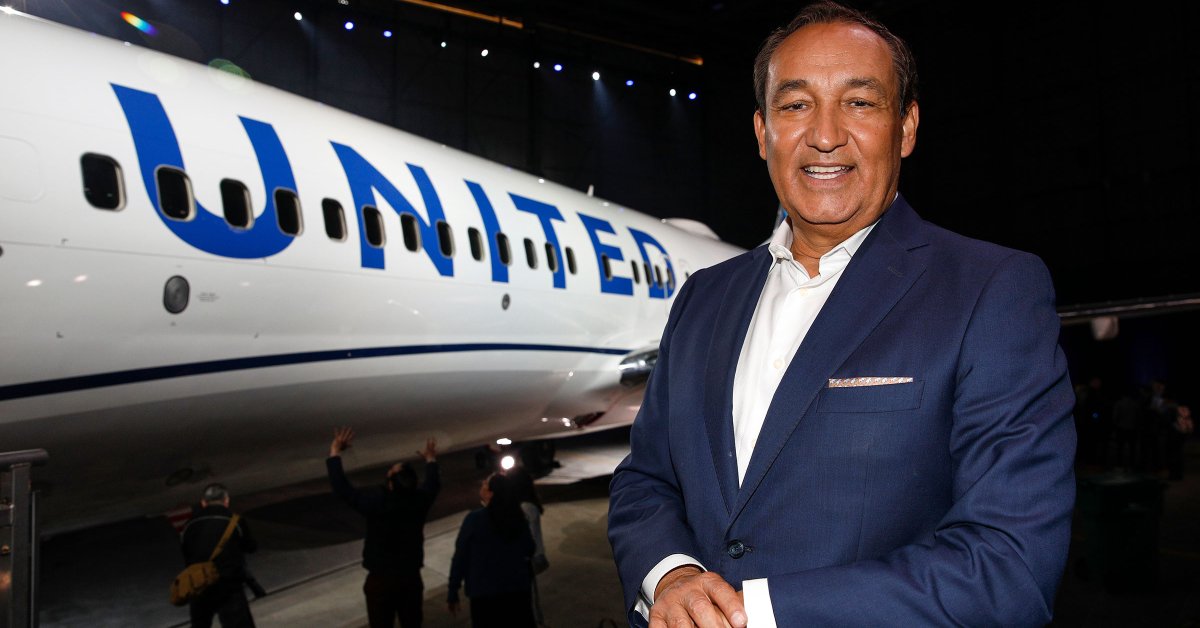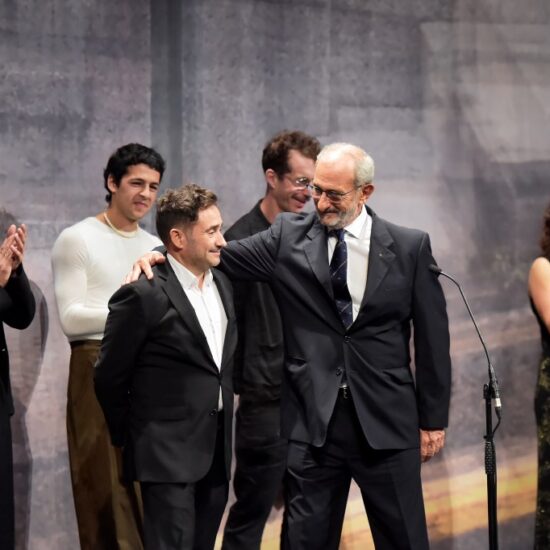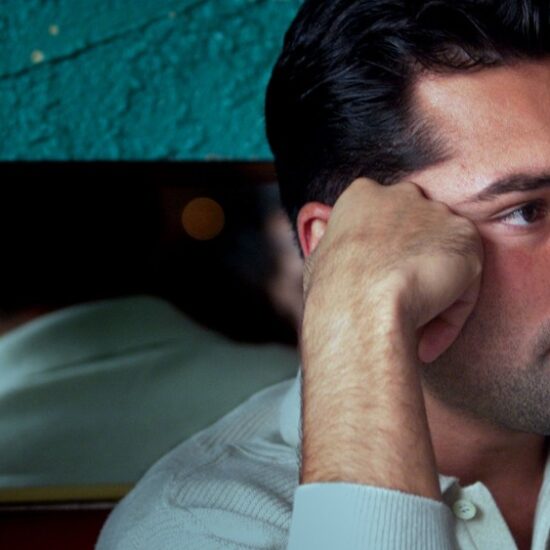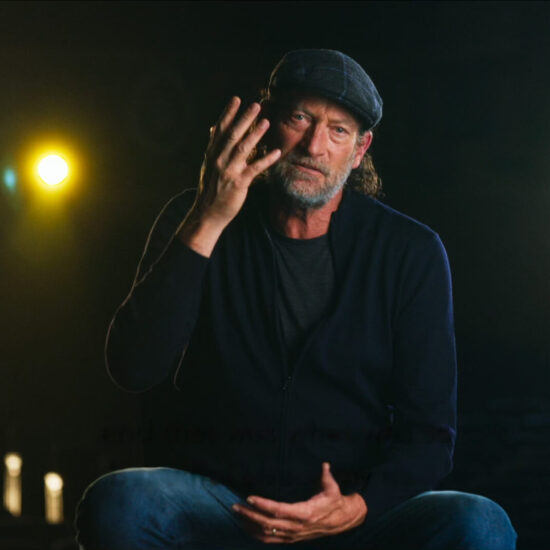
I first met Oscar Munoz when he spoke at our TIME100 Summit in 2019 about the turnaround he was leading at United Airlines. In the years since, we’ve had conversations about numerous topics ranging from leadership in crisis (a mandatory skill in the airline industry) and his pushback against “shrink to growth” as a business strategy to my own parochial pet peeves about Newark Airport. But it wasn’t until reading his new book, which publishes this week, that I learned about his remarkable life story—or just how close to death he was in the hours after suffering a heart attack in his first weeks on the job as CEO.
Called Turnaround Time, borrowed from the measure of how quickly a plane can land and then take off again, the book describes Munoz’s journey: moving between villages in Mexico with his grandmother; coming to the U.S. as an undocumented immigrant (“a Dreamer long before DACA,” as he puts it); touring Harvard College as a young “surfer dude”—he declined their admission offer; and ultimately becoming CEO of a major public company. Today, he sits on several corporate boards, including Univision, CBRE, and Salesforce, whose co-founder and CEO Marc Benioff is TIME’s owner.
This interview has been condensed and edited for clarity.
Walter Isaacson, our mutual friend, United board member, and former TIME editor, writes in the foreword that this is, both in a corporeal and metaphorical sense, a book about the heart. Let’s start with the metaphorical. There’s a scene where your executive team, minutes before you’re about to go get a heart transplant, makes a formal decision that you’re going to start with listening to employees and improving employee relations as a first priority among the many problems the company was facing. Was that a decision unique to United in that moment, where you had such terrible morale post-Continental merger, and with a heavily unionized workforce? Or is that a general business philosophy?
It’s probably a slight hybrid. Airlines are a completely decentralized workforce. Your interaction with a gate agent, or with a flight attendant, that’s mostly what you’ll remember from your flight. And so the leadership approach from my perspective was, how do you capture the hearts and minds of thousands of employees who are so distributed, for whom the level of discretionary effort they’ll put forward is dependent in part on how they’re feeling.
There’s a point also early on where a flight attendant says something that really stuck with you.
That was the seminal moment. After a little bit of prompting, she broke down in tears and angrily said, “Oscar, I’m just tired of always having to say ‘I’m sorry.’ ‘I’m sorry we’re late.’ ‘I’m sorry we have sh-tty coffee.’” It was a point where people would almost rather say they were unemployed than work at United.
Chief executive officer of United Airlines Oscar Munoz speaks during the Time 100 Summit event on April 23, 2019, in New York.
Don Emmert—AFP/Getty Images
Switching gears to the corporeal. You’re 37 days into the job as United CEO. You have a massive heart attack, the kind that is almost always deadly, and then you need a transplant. And I kept thinking as I read it, does he really want to keep doing this job? You could easily have concluded that your body had a lot of work to do and you want to live first.
The decision to stay at the end of the day for everyone, including my family, was an easy one. Even though I was only 37 days of going out into our network and traveling, and seeing people all hours of the night, and making these connections, the decision was evident by the letters and banners and flowers and food that kept coming to my apartment. There were bags of letters, an outpouring. And when my kids read them, it was just one of those things where it’s like, ‘Dad, you have to go back, these people really want you.’ There was also a nurse who said, ‘You know there are two kinds of people that come in here: One is why did this happen to me? The other is, why was I spared? I have a further purpose.’
You were vegan, an avid runner and biker, no prior signs of heart disease. And you have this horrific heart attack. What have you taken from that?
You don’t have to look like a walking heart attack to be vulnerable to one. Sometimes when it hits you, it is just genetics. I never knew my father. So I didn’t have that history. Or there’s just something weak in a particular part of your heart that is hard to diagnose without an invasive test. When it happened to me, I crawled to my phone, called 911 and gave them my address. Because you know, I’m on the 50th floor of an apartment building in Chicago. And they’re not going to find you just through GPS.
Your personal journey is truly remarkable—being raised by your grandmother in Mexico and at first not even recognizing your mother when you joined her in the U.S., one of nine kids in your family, so many challenges and barriers in your childhood. How do you see your early life story shaping your later life story?
It was accidents, but it was also caring humans reaching out along the way to someone in whom they saw promise in some way, and acting on it. And that’s the through line, it’s my philosophy, my duty to care, I call it. Why sit and listen? Because throughout my entire life there has always been somebody around me that has watched out for me, and kind of pushed me in the right direction.
You write that your grandmother, who was a maid at a Las Vegas hotel well into her 80s, was on your mind as you corrected that first response to the incident where a United passenger was violently dragged off the plane and injured.
At first, the advice was around how to spin and because it was on a partner airline and not a United Aircraft, it was the Chicago police authority, etc. So we had lots of reasons why to say it wasn’t us. Other than the reality is like, OK, bullsh-t, you’re deep into this. Trying to sneak your way out is not going to make practical sense. At the end of the day, it’s your fault. So just own it. And that’s what my grandmother would have done. My final words that came out on Good Morning America were me thinking about, in essence, what would she do in this situation. She would not blame others, she would not try to spin, she would just say, ‘Listen, I let those policies and procedures get in the way of doing the right thing for another human being.’
In writing about the decisions that every CEO now faces, around when to speak out on topics of public policy, you say that silence sometimes becomes a vice. And you describe certain topics that you spoke out about while at United, including the Trump “zero tolerance” immigration policy that separated children from their families. How do you think about that dilemma of when to speak out on a topic that might or might not seem core to your stockholders?
You have to think about your purpose and vision as a company. Ours was connecting people to the things that matter most, and uniting the world given that we traveled to the most countries of any airline. We have so many different cultures embedded in our workforce that the concept of diversity and inclusion and awareness is something that we did naturally do. Of course, I have my views, but they’re not the company’s views. I have to keep them private. But this situation of separating children from their parents, what part of connecting people and uniting the world does that reflect?
You write about what you call “knowledge of contribution,” a way for people to understand themselves and what they’re really a fit for and what they are not.
It routes back to the concept of knowing yourself. I always use a simple example. If you’re a plumber, and you’re the best plumber in the world, if the job is a plumbing job, you’re going to do great. If it’s not a plumbing job, but you take it anyway, the likelihood of success is not great. Get people around you who are really honest with you.
I speak about leadership a lot. And I’m always careful to allow people the one choice they have in how they lead: figure out who you are, and what you do best. Not what you want to be, not what others want you to be. That is the root DNA that’s going to affect every decision.
As an aviation outsider before you came to the airline industry, what was your biggest surprise?
How personal it is, both to the people that work inside it and the people that fly. I mean, there’s not a single person who flies and doesn’t have an opinion about 1,000 little different things. They’re not just a number, they’re not just a seat number, they’re not just a confirmation number. They’re humans headed to someplace that matters to them. And you can’t please everyone. But you can certainly try to put your best foot forward. And that comes from the heart, and from genuine discretionary effort. If you can get an organization to feel that way about what they do, you’re going to have a better chance of making someone feel really good about their flight. By the way, the reward for having a really good flight is you don’t hear a damn word about it. But any slight blip? Oh my God.
Are there lessons you now have for the rest of us that would make us more effective, happier travelers?
Yes. When you’re flying, try to understand that you are not the only person who has something to get to, you’re not the only one who has an event, you’re not the only one who is in a rush, you’re not the only one who hit traffic or who somebody looked at the wrong way. These are people who work their asses off for you. There’s no one in the airline going, ‘Oh Edward’s flying today, let’s see how we can mess with him. Cancel that one flight.’
I was speaking at an event the day that Southwest had its meltdown. A lot of people in the audience had to fly, and this man’s question was, ‘What would you have us do as we try to figure out how to get home?’ And the answer was simple. Give them a handshake because they had zero to do with the situation that somebody in corporate caused. They’re having a worst day, because every single human that they’ve touched today is angry at them. So this concept of civility, and caring, is my best advice writ large.
More Must-Reads From TIME














